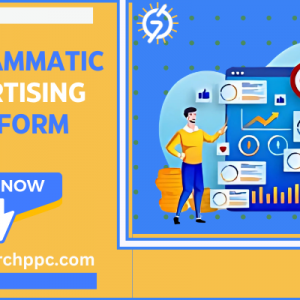In today’s digital age, online marketing and advertising have become essential components for businesses aiming to thrive in a competitive marketplace. As more consumers turn to the internet for information and shopping, understanding the best practices for effective online marketing and advertising can make a significant difference in a brand’s success. This comprehensive guide will explore best practices, strategies, and insights that businesses can apply to enhance their online presence and maximize their advertising efforts.

Understanding Online Marketing and Advertising
What Is Online Marketing?
Online marketing, often referred to as digital marketing, encompasses a variety of strategies and tactics used to promote products or services through the internet. This includes various channels such as social media, email, search engines, and websites. The primary goal of online marketing is to reach potential customers where they spend most of their time—online.
What Is Online Advertising?
Online advertising is a subset of online marketing that specifically focuses on using paid media to reach consumers. This includes a range of formats such as display ads, search engine ads, social media ads, and more. The essence of online advertising is to promote products or services directly to targeted audiences, using data-driven insights to optimize campaigns.
Importance of Online Marketing and Advertising
Wider Reach
One of the most significant advantages of online marketing and advertising is the ability to reach a global audience. Unlike traditional marketing methods, which may be limited by geography, online platforms allow businesses to connect with customers anywhere in the world.
Cost-Effectiveness
Online marketing and advertising often provide a more cost-effective solution compared to traditional methods. Businesses can set budgets, target specific demographics, and measure their return on investment (ROI) more accurately.
Real-Time Analytics
With online marketing and advertising, businesses can track their campaigns in real time. Analytics tools provide insights into user behavior, engagement metrics, and conversion rates, allowing for immediate adjustments to optimize performance.
Enhanced Targeting Capabilities
Online advertising platforms offer advanced targeting options, allowing businesses to reach specific audiences based on demographics, interests, and online behavior. This precision ensures that marketing efforts are focused on the most relevant potential customers.
Best Practices for Online Marketing and Advertising
Setting Clear Goals and Objectives
Define Your Marketing Goals
Before launching any online marketing and advertising campaign, it’s crucial to define clear objectives. Are you aiming to increase brand awareness, generate leads, or drive sales? Setting measurable goals will guide your strategy and help evaluate success.
Use the SMART Criteria
When setting goals, consider using the SMART criteria—Specific, Measurable, Achievable, Relevant, and Time-bound. This framework ensures that your objectives are clear and attainable.
Understanding Your Target Audience
Conduct Market Research
Understanding your target audience is essential for effective online marketing and advertising. Conduct thorough market research to gather insights into your audience’s demographics, preferences, and online behaviors.
Create Buyer Personas
Developing buyer personas can help you visualize your ideal customers. These semi-fictional representations based on research can guide your messaging, content creation, and advertising strategies.
Choosing the Right Advertising Platforms
Explore Digital Advertising Platforms
There are numerous digital advertising platforms available, each offering unique features and targeting options. Popular options include Google Ads, Facebook Ads, and LinkedIn Ads. Research which platforms align best with your target audience and marketing goals.
Consider Ad Networks
Utilizing ad networks can enhance your online advertising efforts. These networks connect advertisers with publishers, allowing for broader reach and inventory access. Explore options like AdRoll and Taboola to expand your advertising reach.
Creating Compelling Content
Develop High-Quality Visuals
Visual content is crucial in online marketing and advertising. Invest in high-quality graphics, images, and videos that resonate with your audience. Engaging visuals can capture attention and convey your message effectively.
Write Engaging Copy
Compelling copy is essential for online ads. Ensure your messaging is clear, concise, and relevant to your audience. Use strong calls to action (CTAs) to encourage users to take the desired action, whether it’s clicking a link or making a purchase.
Leveraging SEO for Online Marketing
Optimize Your Website
Search engine optimization (SEO) is vital for driving organic traffic to your website. Optimize your site’s structure, content, and keywords to improve visibility in search engine results. This includes using relevant keywords related to online marketing and advertising.
Create Valuable Content
Developing high-quality, informative content can improve your SEO efforts. Consider creating blog posts, articles, and resources that provide value to your audience while incorporating relevant keywords.
Utilizing Social Media Marketing
Choose the Right Platforms
Not all social media platforms will be suitable for your business. Identify where your target audience spends their time and focus your efforts on those platforms. Facebook, Instagram, LinkedIn, and Twitter each have unique demographics and advertising options.
Engage with Your Audience
Social media is a two-way street. Engage with your audience by responding to comments, messages, and shares. Building a community around your brand can enhance loyalty and increase the effectiveness of your online marketing and advertising efforts.
Implementing Email Marketing
Build a Quality Email List
Email marketing remains one of the most effective channels for online marketing and advertising. Focus on building a quality email list by offering valuable content or exclusive offers in exchange for email addresses.
Segment Your Audience
Segmentation allows you to tailor your email campaigns to specific groups within your audience. By sending personalized content, you can improve engagement and conversion rates.
Monitoring and Analyzing Campaign Performance
Use Analytics Tools
Regularly monitor your online marketing and advertising campaigns using analytics tools such as Google Analytics, Facebook Insights, or email marketing software. These tools provide valuable data on user behavior, traffic sources, and conversion rates.
Adjust Strategies Based on Data
Be prepared to adjust your strategies based on performance data. Identify which campaigns are successful and which are underperforming, then optimize your approach accordingly.
Staying Updated on Industry Trends
Follow Industry News
The online marketing and advertising landscape is constantly evolving. Stay informed about the latest trends, tools, and technologies by following industry news, blogs, and reputable publications.
Attend Webinars and Conferences
Participating in webinars and conferences can provide valuable insights and networking opportunities. Engaging with industry experts can help you stay ahead of the curve in your online marketing and advertising efforts.
Conclusion
Online marketing and advertising are indispensable for businesses seeking to reach their target audiences effectively. By implementing best practices such as setting clear goals, understanding your audience, choosing the right platforms, creating compelling content, leveraging SEO, utilizing social media, and monitoring performance, businesses can optimize their online digital marketing efforts. Staying updated on industry trends ensures that your strategies remain relevant in a fast-paced digital landscape.
By embracing these practices, businesses can enhance their online presence, engage their audiences, and ultimately drive growth and success in today’s competitive marketplace.
FAQs (Frequently Asked Questions)
What is online marketing?
Ans: Online marketing refers to the promotion of products or services through digital channels, including websites, social media, email, and search engines.
What is online advertising?
Ans: Online advertising is a form of paid marketing that promotes products or services through digital platforms, utilizing formats like display ads, search engine ads, and social media ads.
How can I measure the success of my online marketing campaigns?
Ans: You can measure success using analytics tools that track key performance indicators (KPIs) such as traffic, engagement, conversion rates, and return on investment (ROI).
What are the best platforms for online advertising?
Ans: Popular platforms for online advertising include Google Ads, Facebook Ads, Instagram Ads, and LinkedIn Ads. The best choice depends on your target audience and marketing goals.
How can I improve my website's SEO?
Ans: To improve SEO, optimize your website’s content, structure, and keywords, create valuable content, and ensure your site is mobile-friendly and fast-loading.







